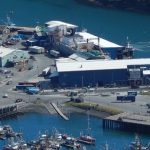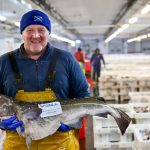In welcoming new First Minister Humza Yousaf, Scottish Fishermen’s Federation chief executive Elspeth Macdonald has stressed that the government needs to work with the fishing industry to help it flourish – now that most key stocks are in excellent condition and being fished sustainably, although she warned that this comes at a time when government policies risk damaging food production.
‘I welcome Mr Yousaf as our new First Minister and look forward to meaningful dialogue with him on how government can support our industry now and in the future. In particular, we would welcome a re-appraisal of the Bute House Agreement as it relates to fishing,’ she said.
‘We have highlighted our concerns about HPMAs and offshore windfarms, which a specialist study has shown could close more than 50% of Scottish waters to vessels by 2050.’
During the SNP leadership contest, unsuccessful candidate Kate Forbes had signalled her willingness to re-examine the policy of implementing Highly Protected Marine Areas (HPMAs) in 10% of Scotland’s waters, in addition to the 37% already restricted by Marine Protected Areas.
SFF and fishing industry figures have highlighted that this is being pushed through in the absence of any clear ecological objectives.
According to the SFF, the development of huge offshore windfarms would threaten the industry’s existence by squeezing it out of key fishing grounds.
‘The Crown Estate Scotland has announced another 13 offshore wind projects under the Innovation and Targeted Oil & Gas (INTOG) round east of Aberdeenshire which will effectively close a further 1600 square kilomtres of the sea for between 25 and 50 years at least. These projects could significantly impact the nephrops sector and further restrict the industry’s ability to operate profitably,’ Elspeth Macdonald said.
‘These new projects have been announced before the government’s INTOG plan has even been finalised, which raises questions about government’s approach to marine planning. They come in addition to 17 offshore wind projects announced last year under the ScotWind round.
Fishermen are not opposed to offshore wind in principle, but they need to be much more involved and listened to at the earliest planning stage to ensure that an industry with an already low carbon footprint – and one that is a vital source of healthy protein as well as being important for food security – is not sacrificed by the renewables juggernaut.’
Image: SNP









